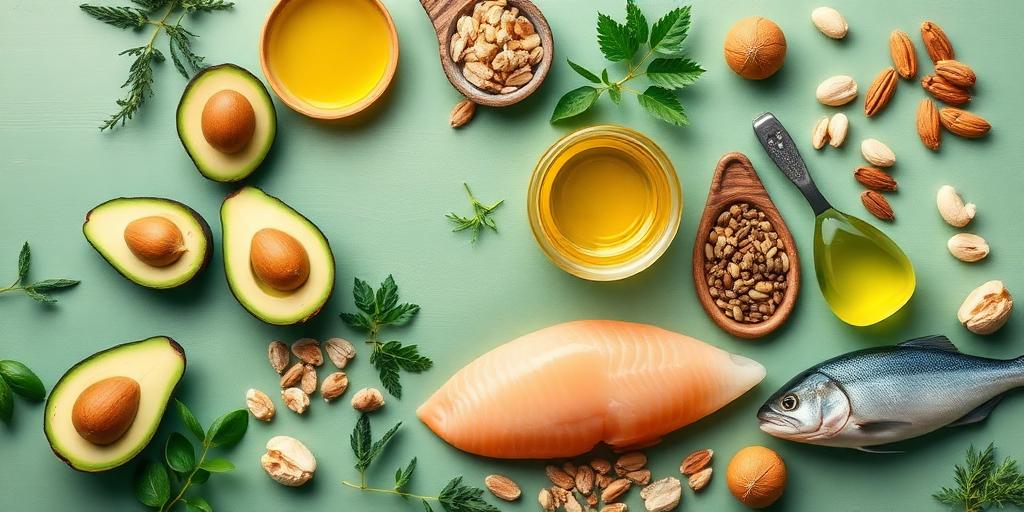Understanding Healthy Fats for Heart Health
Fats have often been villainized in the context of heart health, but the truth is more nuanced. Not all fats are created equal. While some fats can indeed raise your risk of heart disease, others are essential for maintaining a healthy cardiovascular system. This article will delve into the world of healthy fats, explaining their benefits and how to incorporate them into your diet.
What are Healthy Fats?
Healthy fats, primarily monounsaturated and polyunsaturated fats, play a vital role in supporting heart health. These fats can help improve cholesterol levels, reduce inflammation, and provide essential nutrients your body needs. Understanding the difference between these fats and their less healthy counterparts is crucial for making informed dietary choices.
Monounsaturated Fats (MUFAs)
Monounsaturated fats are found in a variety of foods and are known for their heart-healthy benefits. They can help lower LDL (bad) cholesterol levels and reduce the risk of cardiovascular disease.
Sources of Monounsaturated Fats:
- Olive oil
- Avocados
- Nuts (almonds, cashews, pecans)
- Seeds (pumpkin, sesame)
Polyunsaturated Fats (PUFAs)
Polyunsaturated fats include omega-3 and omega-6 fatty acids, both of which are essential for overall health. Omega-3s, in particular, are well-known for their anti-inflammatory properties and their ability to lower triglyceride levels.
Sources of Polyunsaturated Fats:
- Fatty fish (salmon, mackerel, tuna)
- Flaxseeds and flaxseed oil
- Walnuts
- Sunflower seeds
- Soybean oil
Benefits of Healthy Fats for Heart Health
- Improved Cholesterol Levels: Healthy fats can help lower LDL cholesterol and increase HDL (good) cholesterol, reducing the risk of plaque buildup in arteries.
- Reduced Inflammation: Omega-3 fatty acids have anti-inflammatory properties that can protect blood vessels and reduce the risk of heart disease.
- Lower Triglyceride Levels: Polyunsaturated fats, especially omega-3s, can help lower triglyceride levels, a type of fat in the blood that can contribute to heart disease.
- Better Blood Clotting: Healthy fats can help prevent excessive blood clotting, reducing the risk of heart attacks and strokes.
How to Incorporate Healthy Fats into Your Diet
- Use Olive Oil: Replace butter or other less healthy fats with olive oil when cooking.
- Eat Fatty Fish: Aim to eat fatty fish at least twice a week to get a good dose of omega-3s.
- Snack on Nuts and Seeds: Choose nuts and seeds as a healthy snack option, but be mindful of portion sizes due to their high calorie content.
- Add Avocado: Incorporate avocado into your meals, such as salads, sandwiches, or smoothies.
- Choose Healthy Oils: Use oils like flaxseed oil or walnut oil in salad dressings or as a finishing oil for dishes.
Fats to Limit or Avoid
While healthy fats are beneficial, it's equally important to limit or avoid unhealthy fats, such as saturated and trans fats. These fats can raise LDL cholesterol levels and increase the risk of heart disease.
- Saturated Fats: Found in red meat, full-fat dairy products, and processed foods.
- Trans Fats: Often found in fried foods, baked goods, and processed snacks. Look for "partially hydrogenated oils" on food labels and avoid these products.
Conclusion
Incorporating healthy fats into your diet is a crucial step in maintaining heart health. By choosing monounsaturated and polyunsaturated fats over saturated and trans fats, you can improve your cholesterol levels, reduce inflammation, and lower your risk of heart disease. Remember to focus on whole, unprocessed foods and be mindful of portion sizes to reap the full benefits of healthy fats.









